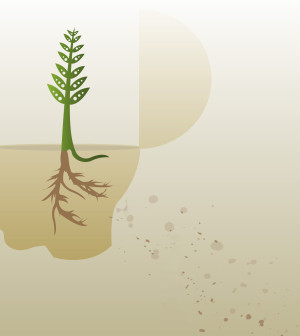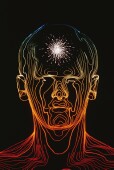- Could Your Grocery Store Meat Be Causing Recurring UTIs?
- Are You Making This Expensive Thermostat Error This Winter?
- Recognizing the Signs of Hypothyroidism
- 10 Strategies to Overcome Insomnia
- Could Artificial Sweeteners Be Aging the Brain Faster?
- Techniques for Soothing Your Nervous System
- Does the Water in Your House Smell Funny? Here’s Why
- Can a Daily Dose of Apple Cider Vinegar Actually Aid Weight Loss?
- 6 Health Beverages That Can Actually Spike Your Blood Sugar
- Treatment Options for Social Anxiety Disorder
‘Homing Signal’ in Brain Helps Humans Navigate, Research Shows


A “homing signal” in the brain tells people which way to travel, and the strength of the signal affects people’s ability to navigate, researchers report.
Their study is the first to uncover why some people are better at finding their way than others, and also offers new insight into why getting lost is a common problem among people with Alzheimer’s disease.
The British scientists discovered that a part of the brain called the entorhinal region tells you which direction you are currently facing, and also which direction you need to travel to reach your destination.
For the study, brain scans were conducted on 16 people as they tried to find their way on landscapes displayed on a computer. The findings were published Dec. 18 in the journal Current Biology.
“In this simple test, we were looking to see which areas of the brain were active when participants were considering different directions,” study leader Dr. Hugo Spiers, of University College London, said in a college news release.
“We were surprised to see that the strength and consistency of brain signals from the entorhinal region noticeably influenced people’s performance in such a basic task. We now need to investigate the effect in more complex navigational tasks, but I would expect the differences in entorhinal activity to have a larger impact on more complex tasks,” he added.
“This type of ‘homing signal’ has been thought to exist for many years, but until now it has remained purely speculation,” Spiers said. “Studies on London cab drivers have shown that the first thing they do when they work out a route is calculate which direction they need to head in. We now know that the entorhinal cortex is responsible for such calculations and the quality of signals from this region seem to determine how good someone’s navigational skills will be.”
The entorhinal region is also one of the first parts of the brain affected by Alzheimer’s disease, and this study may help explain why people start to get lost in the early stages of the disease, the researchers said in the news release.
They suggested a navigation test similar to the one used in the study might help diagnose Alzheimer’s at an early stage and monitor progression of the disease.
More information
George Washington University has more about the brain and navigation.
Source: HealthDay
Copyright © 2026 HealthDay. All rights reserved.










